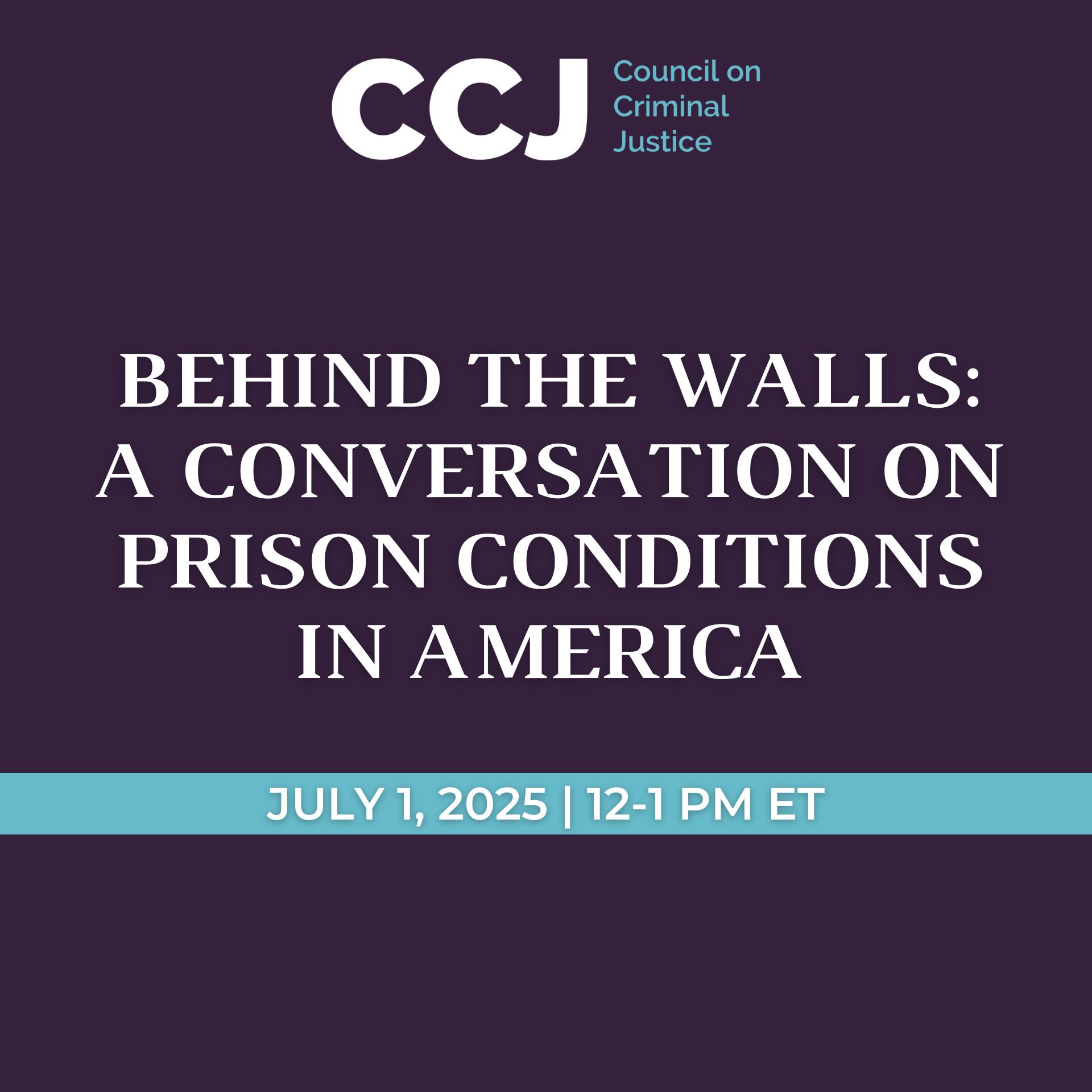COVID-19 pandemic adds urgency to 15 evidence-based recommendations for improving public safety, health, and justice
5:00 a.m. ET, May 27, 2020
Contact: Jenifer Warren
jwarren@counciloncj.org
916-217-0780
WASHINGTON, D.C. – With unprecedented speed and force, COVID-19 has upended life in the United States, sidelining entire industries while devastating families and communities. It has also laid bare the perilous vulnerabilities of our nation’s criminal justice system – and everyone connected with it.
Well before COVID-19 surfaced, the Council on Criminal Justice (CCJ) established an independent task force to chart a course for federal action on criminal justice reform. The pandemic has underscored the urgency of that effort, and today the Task Force on Federal Priorities released a report detailing 15 achievable, evidence-based proposals for change.
If fully implemented, key recommendations would:
- Eliminate mandatory minimum sentences for federal drug crimes, reducing the prison population
- Establish a “second look” provision allowing people serving longer sentences – many of them elderly and infirm – to ask courts for a sentence reduction
- Help formerly incarcerated people succeed by sealing certain criminal records from public view
- Create independent oversight of the federal prison system to improve conditions for incarcerated people and staff, strengthen reentry planning and other services, and hold employees accountable for misconduct
- Resolve the federal-state conflict over recreational and medical cannabis by providing federal waivers to states that have legalized it
- Dedicate millions of grant dollars to reducing victimization and trauma in cities most affected by violence
“The Task Force spent months identifying the top priorities for realistic reforms at the federal level and reaching consensus on a game plan to move us forward,” said former congressman and Georgia Governor Nathan Deal, who served as chair of the Task Force. “If enacted, these proposals will bring greater safety and justice to Americans and sustain our momentum on a bipartisan issue of critical importance.”
“The pandemic engulfing the world has exposed more fully than ever the deficiencies in our nation’s criminal justice system, and how those deficiencies endanger people, communities, and public safety,” said former Philadelphia Mayor Michael Nutter, a Task Force member. “Let us honor the pain, suffering, and loss of life that has occurred during this crisis by sharpening and refocusing our work for change.”
The 14-member Task Force was established in June of 2019 to build on federal reforms adopted under the FIRST STEP Act, which passed with strong bipartisan support at the end of 2018. While crime and incarceration rates have dropped, there is broad agreement across the political spectrum that more must be done to make communities safe and guarantee justice—not just by states and localities, where most criminal justice happens, but also by the federal government, which runs the country’s largest correctional system and helps set the tone of the national conversation.
Through their vigorous deliberations, Task Force members zeroed in on reforms that not only target critical needs, but also are politically viable and hold the potential to make the greatest improvements in safety and the administration of justice. Reflecting the commitment of Task Force members to bipartisan, data-driven solutions, all 15 proposals are accompanied by a policy rationale, detailed implementation steps, and a summary of the research and evidence that support them.
Task Force members represent a broad cross-section of stakeholders: former federal prosecutors and defenders; a former mayor and a veteran police leader; experts in prisoner reentry, substance use, and victim rights; and advocates and formerly incarcerated people.
Task Forces are strictly independent of CCJ and solely responsible for the content of their reports. Members are asked to join a consensus signifying that they endorse the general policy thrust and judgments reached by the group, though not necessarily every finding and recommendation.
Today at 12:30 EST Gov. Deal and Task Force members will present a web briefing on the report. Click here to join the event. An embargoed copy of the report can be found here. Beginning at 12:01 a.m. EST today, an online version will go live here.
About the Council on Criminal Justice
The Council on Criminal Justice is a nonpartisan membership organization and think tank created to advance understanding of the criminal justice policy challenges facing the nation and builds consensus for solutions based on facts, evidence, and fundamental principles of justice.
As part of its array of activities, the Council conducts research and convenes independent groups of members and experts that produce reports with findings and policy recommendations on matters of concern. The findings and recommendations of the groups are their own; neither the Council’s Board of Directors nor its Board of Trustees approve or disapprove of their work. To learn more, visit counciloncj.org.



